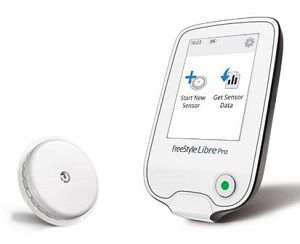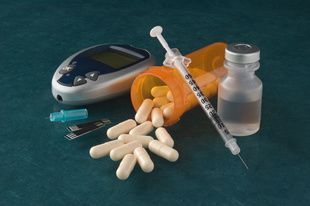
Glucose Monitoring
Latest News

CGM Shows When Bariatric Surgery Patients Need Diabetes Therapy Adjustments

New Look at VA Diabetes Trial Links Severe Hypoglycemia, Cardiovascular Events
Latest Videos

CME Content
More News

A presentation at the fall live meeting of the ACO & Emerging Healthcare Delivery Coalition® focused on the clinical and economic consequences of not meeting glycemic goals in patients with type 2 diabetes.

Novo Nordisk announced that the FDA has approved its insulin aspart injection Fiasp, which can rapidly improve glycemic control at mealtimes for patients with type 1 and type 2 diabetes.

Every week, The American Journal of Managed Care® recaps the top managed care news of the week, and you can now listen to it on our podcast, Managed Care Cast.

Every week, The American Journal of Managed Care® recaps the top managed care news of the week, and you can now listen to it on our podcast, Managed Care Cast.

This week, the top managed care news included insurers staying away from HealthCare.gov, where you live can affect your chance of surviving cancer, and a new deal could help people on Medicare with diabetes.

Patients with schizophrenia are at high risk of developing diabetes, particularly due to the effects of antipsychotic medications, but the results of a recently published trial indicate liraglutide can help improve glucose tolerance and body weight in prediabetic patients.

Glytec’s Glucommander electronic glucose management system (eGMS) helped the Kaweah Delta hospital shift its standard of care to basal-bolus insulin, explained Raymie McFarland, vice president of Quality Initiatives at Glytec. Basal-bolus is considered best practice and is safer for patients, but many hospitals have not adopted it due to its difficulty. Glytec hopes its eGMS can change that.

Hybrid closed-loop insulin delivery systems, also referred to as an artificial pancreas, can help improve the management of diabetes while researchers seek a cure, as well as provide reassurance for patients and their families, according to Eda Cengiz, MD, MHS, FAAP, associate professor of pediatrics at Yale School of Medicine.

Continuous glucose monitoring has the potential to revolutionize diabetes care for patients with type 2 diabetes, whether they are on insulin therapy or not, but the technology must be accompanied by stronger support from clinicians in order to be most successful, explained William Polonsky, PhD, CDE, president of the Behavioral Diabetes Institute and associate clinical professor at University of California, San Diego.

There are a number of exciting technological advances that could change diabetes care as we know it, such as improved continuous glucose monitors and convenient decision support tools, said Robert Gabbay, MD, PhD, chief medical officer of the Joslin Diabetes Center.

Prior data had indicated that sodium-glucose cotransporter 2 (SGLT2) inhibitors could be linked to diabetic ketoacidosis, a serious complication of diabetes.

A new study published in Diabetes Care investigates ways to prevent driving accidents among patients with type 1 diabetes, who may be at higher risk of having such mishaps.










Research presented this week at the 99th annual meeting of the Endocrine Society suggested that people with type 2 diabetes who worked overnight shifts tend to have poorer control over their blood sugar levels than those who worked during the day or were unemployed.

With new technologies that allow insulin to be delivered much more easily and at a targeted speed, diabetes treatment is less likely to interfere with patients’ lives, explained Yehuda Handelsman, MD, FACP, FACE, FNLA, medical director and principal investigator at the Metabolic Institute of America.

A new study published in Annals of Internal Medicine has observed encouraging results from a program that implemented a virtual glucose management system for hospital inpatients.

Recent advances in insulin formulations and innovative drug classes have made it easier than ever to manage diabetic patients’ glucose levels, according to Yehuda Handelsman, MD, FACP, FACE, FNLA, medical director and principal investigator at the Metabolic Institute of America.

















